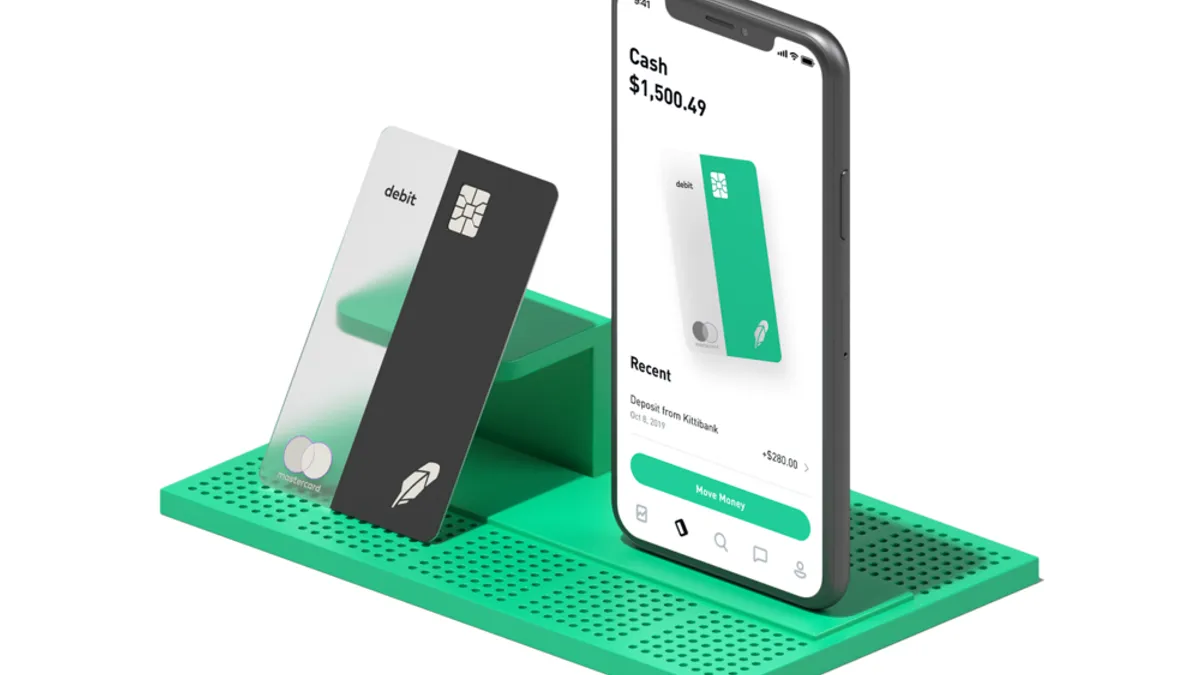The family of 20-year-old Alex Kearns, a day trader who killed himself last June, sued Robinhood on Monday for wrongful death.
Kearns used the platform to initiate an options trade whose maximum loss he believed was limited to less than $10,000, according to a complaint filed Monday in California state court.
Robinhood emailed Kearns to notify him that he needed to deposit about $178,000 in the following days to offset a negative balance, which the app estimated was $730,000, the complaint said. But the company failed to mention that figure may have represented just one leg of Kearns's trade and that he held exercisable options in his account that would have "more than covered his obligation," the complaint said.
Kearns misunderstood the financial statement, the complaint alleges, and emailed Robinhood's customer-support team three times overnight asking for more information but received auto-generated replies. He could not have reached customer service by phone because Robinhood doesn't maintain such hotlines for customers.
"Though Alex's panic and confusion were clearly caused by Robinhood's misleading communications, Robinhood was impossible to reach at the most critical moment to repair the damage it had created," the complaint said.
Kearns rode on his bicycle to a railroad crossing and ran in front of an oncoming train, a move the complaint alleges was meant to shield his family from the financial burden of the perceived loss.
"We were devastated by Alex Kearns' death," Robinhood said in a statement seen by CNBC. The company detailed a list of improvements it has made to its options offering since June.
"These include adding the ability to exercise contracts in the app, guidance to help customers through early assignment, updates to how we display buying power, more educational materials on options, and new financial criteria and revised experience requirements for new customers seeking to trade Level 3 options," Robinhood's statement said. "In early December, we also added live voice support for customers with an open options position or recent expiration, and plan to expand to other use cases.
"We also changed our protocol to escalate customers who email us for help with exercise and early assignment," the company added. "We remain committed to making Robinhood a place to learn and invest responsibly."
Kearns's family is seeking unspecified damages, Bloomberg reported.
Robinhood's "reckless conduct directly and proximately caused the death of one of its victims," the family said in the complaint, which also accuses the company of negligent infliction of emotional distress and unfair business practices.
"Robinhood provided almost no investment guidance, and its customer 'service' was virtually non-existent, consisting of automated e-mail replies devoid of any human contact or interaction," the family said in the complaint.
Kearns, in a note he left his family, said he had "no clue" what he was doing, CNBC reported.
"How was a 20 year old with no income able to get assigned almost a million dollars worth of leverage?" the note read. "There was no intention to be assigned this much and take this much risk, and I only thought that I was risking the money that I actually owned."
Robinhood has been a consistent target of lawsuits and regulatory action over the past year. The company faced a class-action lawsuit in March after a string of outages left customers unable to access the platform on a day when the Dow Jones Industrial Average posted its greatest percentage gain since 2009. Last month, the company was named as a defendant in more than a dozen class-action suits after it restricted trading of shares including GameStop.
Robinhood in December agreed to pay $65 million to settle charges from the Securities and Exchange Commission (SEC) that it failed to disclose until 2018 that it sold its clients' orders to high-speed trading firms.
A day earlier, Massachusetts securities regulators filed a complaint against Robinhood, citing its "aggressive tactics to attract inexperienced investors, its use of gamification strategies to manipulate customers, and its failure to prevent frequent outages and disruptions on its trading platform."
That stance echoed in the Kearns family's court action. "This case centers on Robinhood's aggressive tactics and strategy to lure inexperienced and unsophisticated investors, including Alex, to take big risks with the lure of tantalizing profits," the complaint said. "Robinhood's aggressive ploys to attract young customers, combined with its flagrant disregard for its duty of care to its customers, creates a time bomb that was destined to lead to the type of tragedy that happened to Alex."
Despite its legal issues, Robinhood also saw explosive growth in 2020 — by some estimates doubling its customer count over the year. About 3 million new users joined Robinhood in the first four months of last year, to swell its ranks to 13 million. The brokerage ended the year with 20 million users, The Wall Street Journal reported. Three million users downloaded the app in January amid the GameStop fervor, traffic analysis site SimilarWeb estimated, according to CNBC. Robinhood CEO Vlad Tenev and his team told investors they still plan to take the company public in the first half of 2021, according to the Journal.




















